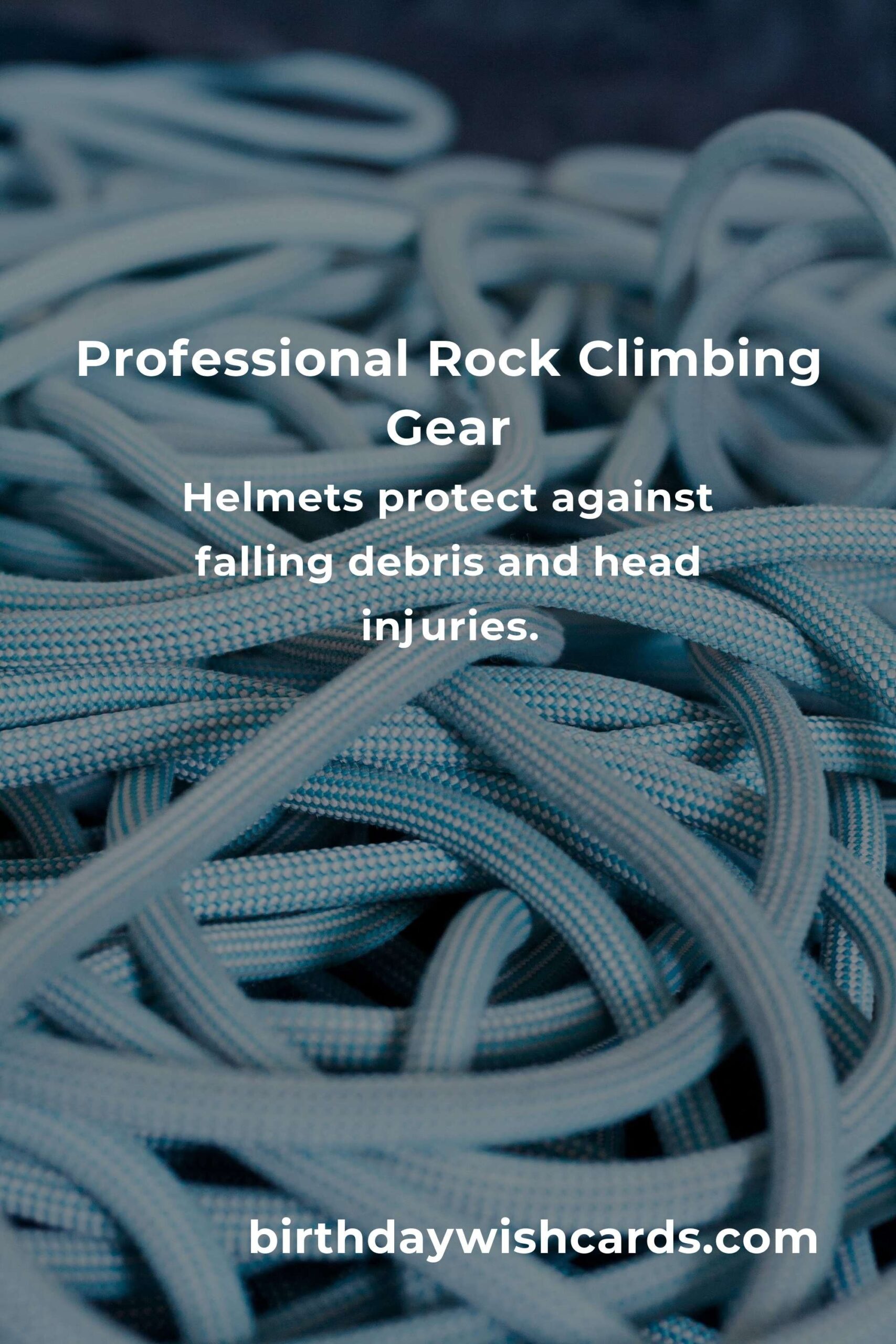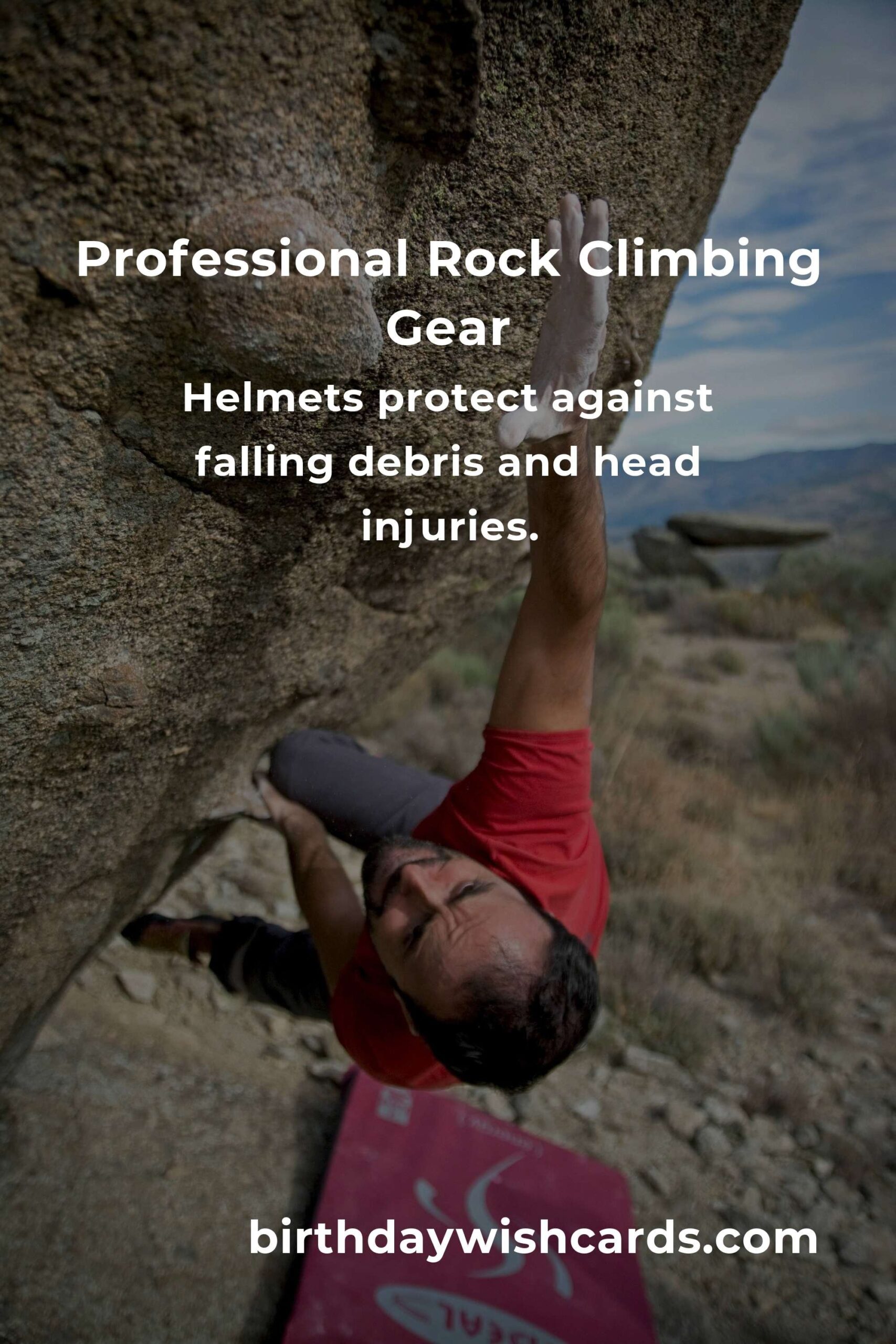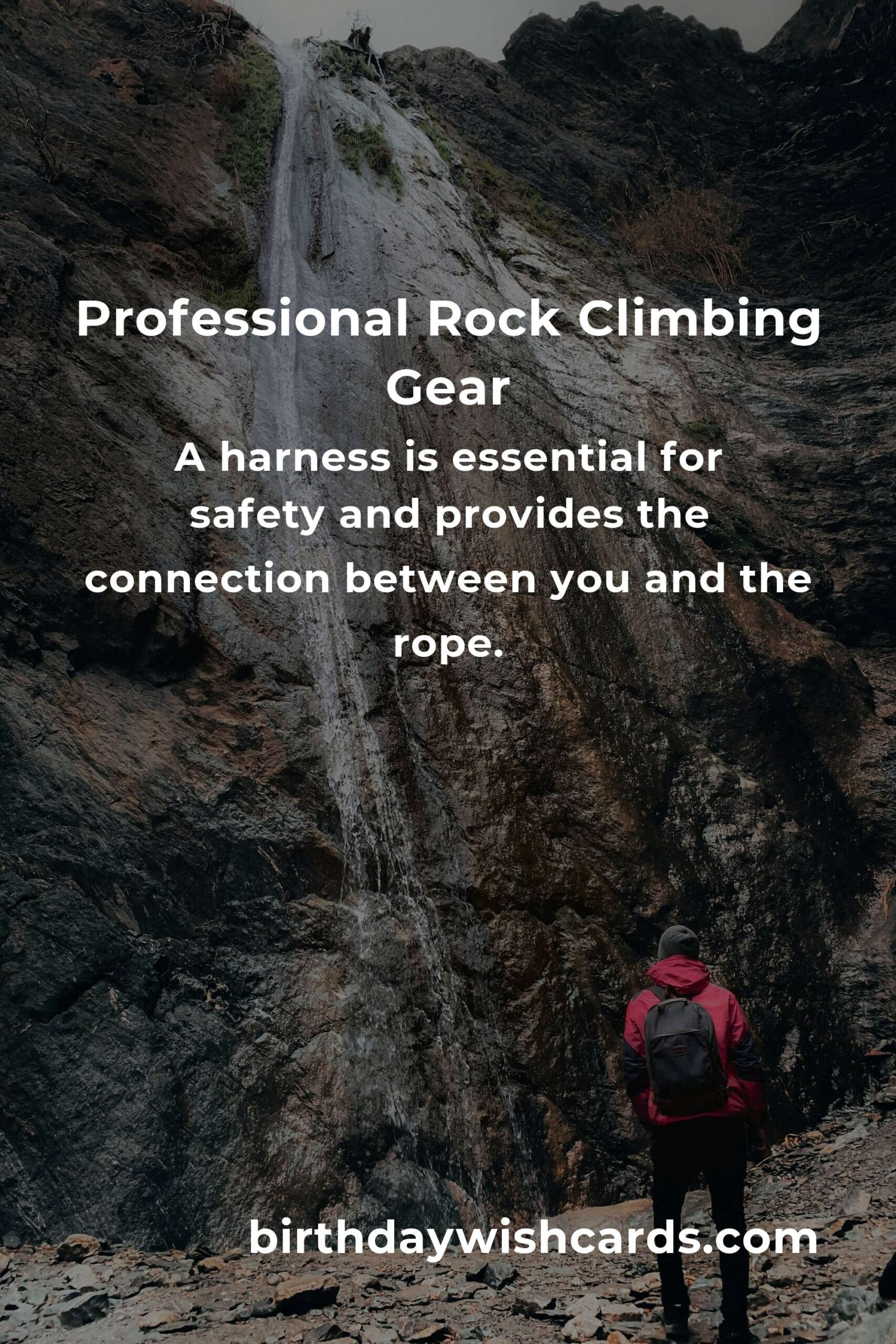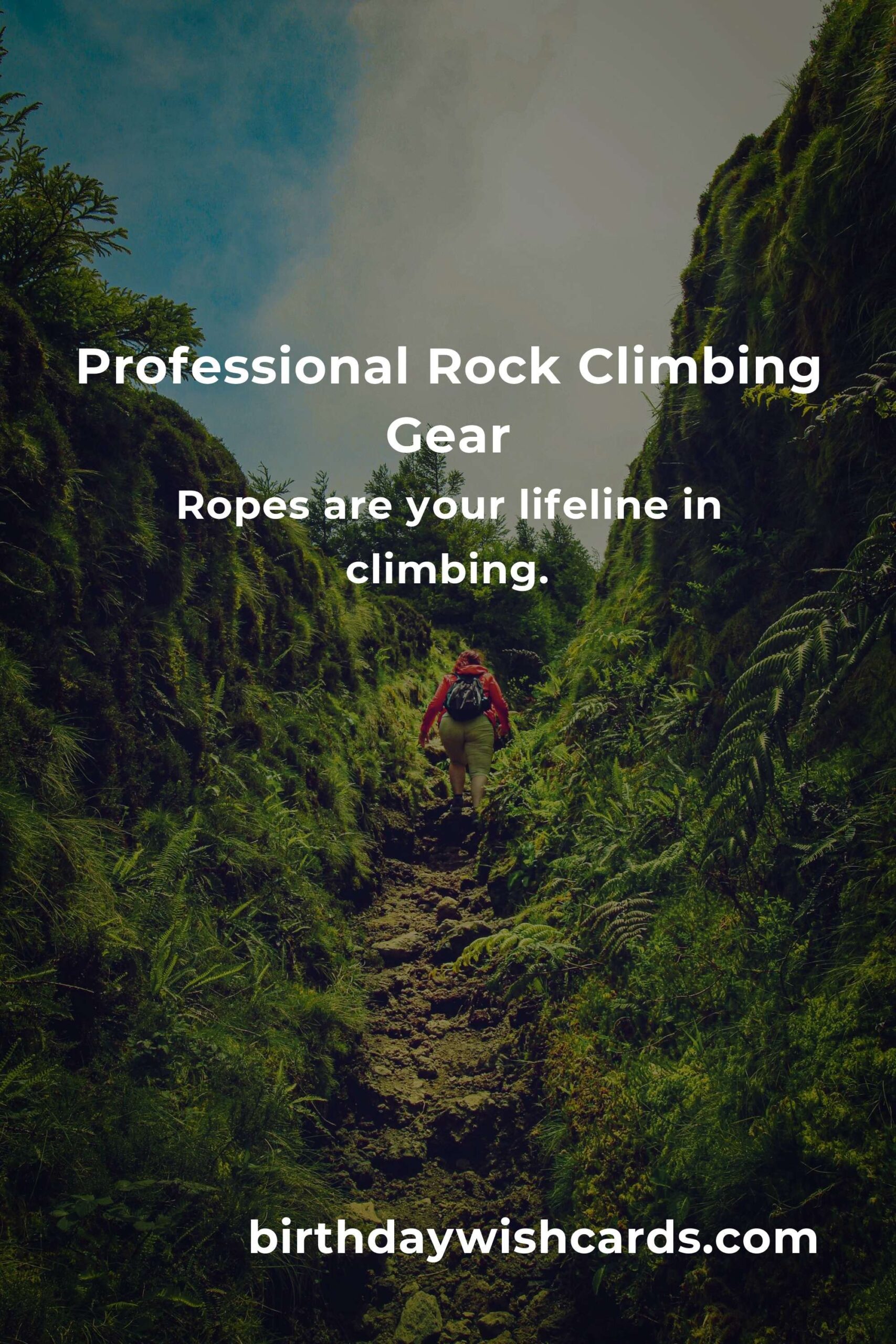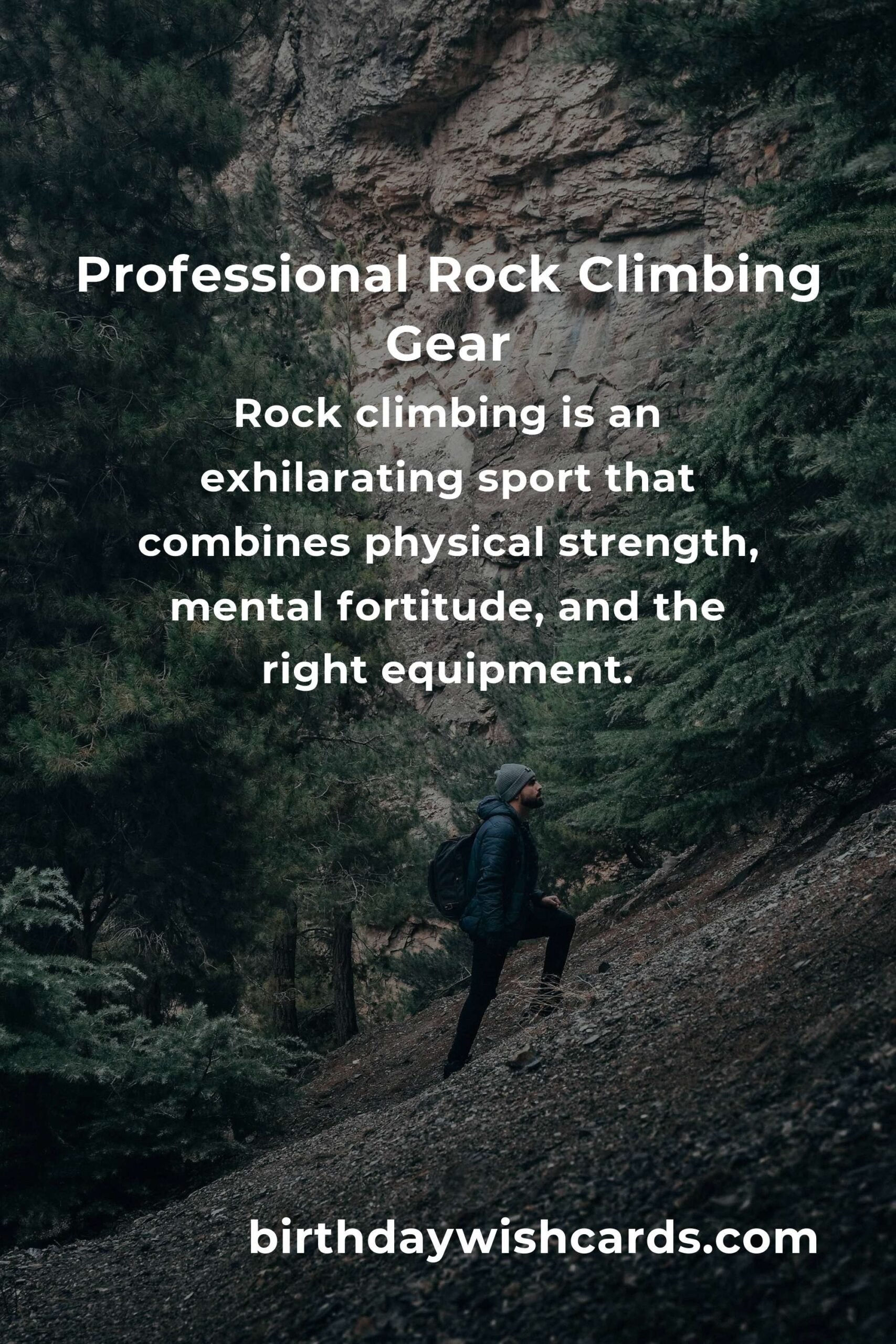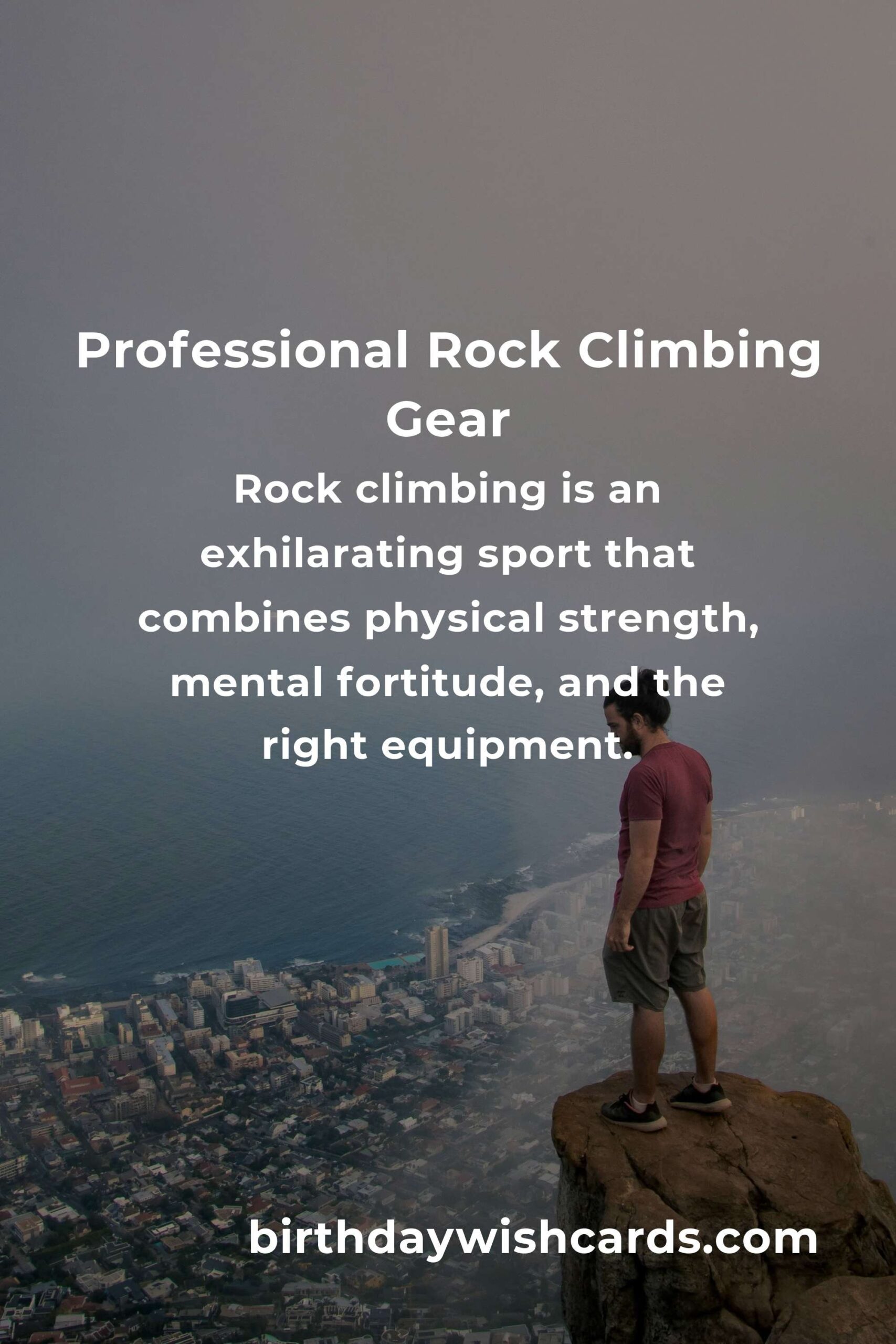
Rock climbing is an exhilarating sport that combines physical strength, mental fortitude, and the right equipment. For professional climbers, having the correct gear is crucial to ensure safety and performance. This comprehensive guide will take you through the essential equipment every professional rock climber needs.
Climbing Shoes
Climbing shoes are one of the most critical pieces of equipment for professional climbers. They provide the necessary grip and support needed to tackle challenging routes. When selecting climbing shoes, consider factors such as fit, material, and type of climbing.
Fit: Shoes should fit snugly but not painfully tight. A precise fit ensures maximum performance and comfort.
Material: Leather shoes mold to the shape of your foot over time, while synthetic materials offer less stretch but are often more breathable.
Type: Choose between neutral, moderate, and aggressive shoes based on your climbing style and terrain.
Harness
A harness is essential for safety and provides the connection between you and the rope. When choosing a harness, focus on comfort, adjustability, and features.
Comfort: Look for padded waist belts and leg loops for extended wear.
Adjustability: Adjustable leg loops and waist belts accommodate different clothing layers and body types.
Features: Gear loops, haul loops, and ice clipper slots are useful for carrying additional equipment.
Climbing Rope
Ropes are your lifeline in climbing. Professional climbers typically use dynamic ropes, which stretch to absorb the impact of a fall.
Diameter: Choose a diameter between 9.4mm and 10.2mm for a balance between weight and durability.
Length: Standard rope lengths are 60m or 70m, but longer ropes are available for specific climbs.
Features: Look for features like dry treatment to resist water and dirt.
Belay Device
Belay devices control the rope during climbing, ensuring the safety of the climber. Popular options include tubular devices, assisted-braking devices, and figure-eight devices.
Tubular Devices: These are versatile and suitable for most types of climbing.
Assisted-Braking Devices: These offer additional safety by automatically locking the rope, reducing manual effort.
Figure-Eight Devices: Known for simplicity, these are typically used in rappelling.
Helmet
Helmets protect against falling debris and head injuries. Choose a helmet that offers a balance of protection, comfort, and ventilation.
Chalk and Chalk Bag
Chalk helps maintain grip by absorbing sweat. A chalk bag should be easily accessible while climbing.
Carabiners
Carabiners are used to connect components of the climbing system. Locking carabiners are essential for safety-critical connections, while non-locking carabiners are useful for quickdraws and other non-critical connections.
Quickdraws
Quickdraws connect the climbing rope to protection placed on the rock. They consist of two carabiners connected by a sling.
Protection Equipment
Protection equipment, such as cams and nuts, is used in traditional climbing to secure the climber to the rock.
Conclusion
Equipping yourself with the right gear is essential for a successful and safe climbing experience. As a professional, investing in high-quality equipment tailored to your climbing style and needs is crucial. Always ensure your gear is well-maintained and inspected regularly for wear and damage. Stay safe and enjoy the climb!
Rock climbing is an exhilarating sport that combines physical strength, mental fortitude, and the right equipment.
Climbing shoes are one of the most critical pieces of equipment for professional climbers.
A harness is essential for safety and provides the connection between you and the rope.
Ropes are your lifeline in climbing.
Helmets protect against falling debris and head injuries.
Equipping yourself with the right gear is essential for a successful and safe climbing experience.
#RockClimbing #ClimbingGear #ProfessionalClimbing #OutdoorAdventure #SafetyFirst

